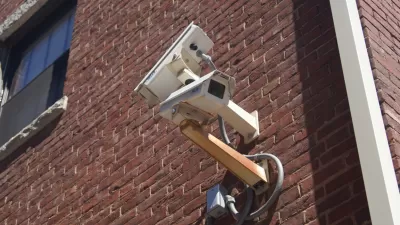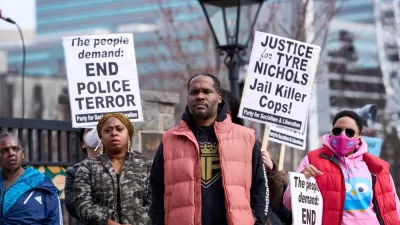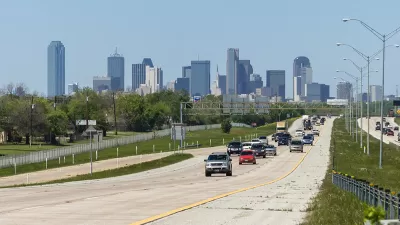Despite its insistence that the technology would only target criminals, Dallas Area Rapid Transit (DART) should reconsider using facial recognition software to address crime. The potential for abuse may be too high.

Prompted by concerns about crime, Dallas' DART system is experimenting with facial recognition software linked to an offender database. Although officials likely have good intentions, Michael A. Lindenberger is worried about the creep factor: will riders be logged and tracked every time they use the system?
The question is whether DART will restrict its use of the technology to criminal situations alone. "DART says it will build its own database of names and photos, based on incidents in which DART riders come to the attention to DART police. Maybe you get busted for not paying your fare. The police take your picture, and in you go to the database. You get in a fight on the train, and in you go."
While Lindenberger's concerns may be unfounded right now, facial recognition could become yet another way to assault citizens' privacy and anonymity. "Computers at DART could be building a database full of information about each of its riders, forevermore. And someday, if DART wants to find me at 8:30 on a Monday morning, it won't even have to ask its cameras to help. It will have years' worth of my travel habits, and will simply make a guess. It'll be a pretty good one."
FULL STORY: DART should scrap its creepy plan to use facial recognition software

Maui's Vacation Rental Debate Turns Ugly
Verbal attacks, misinformation campaigns and fistfights plague a high-stakes debate to convert thousands of vacation rentals into long-term housing.

Planetizen Federal Action Tracker
A weekly monitor of how Trump’s orders and actions are impacting planners and planning in America.

San Francisco Suspends Traffic Calming Amidst Record Deaths
Citing “a challenging fiscal landscape,” the city will cease the program on the heels of 42 traffic deaths, including 24 pedestrians.

Defunct Pittsburgh Power Plant to Become Residential Tower
A decommissioned steam heat plant will be redeveloped into almost 100 affordable housing units.

Trump Prompts Restructuring of Transportation Research Board in “Unprecedented Overreach”
The TRB has eliminated more than half of its committees including those focused on climate, equity, and cities.

Amtrak Rolls Out New Orleans to Alabama “Mardi Gras” Train
The new service will operate morning and evening departures between Mobile and New Orleans.
Urban Design for Planners 1: Software Tools
This six-course series explores essential urban design concepts using open source software and equips planners with the tools they need to participate fully in the urban design process.
Planning for Universal Design
Learn the tools for implementing Universal Design in planning regulations.
Heyer Gruel & Associates PA
JM Goldson LLC
Custer County Colorado
City of Camden Redevelopment Agency
City of Astoria
Transportation Research & Education Center (TREC) at Portland State University
Jefferson Parish Government
Camden Redevelopment Agency
City of Claremont




























